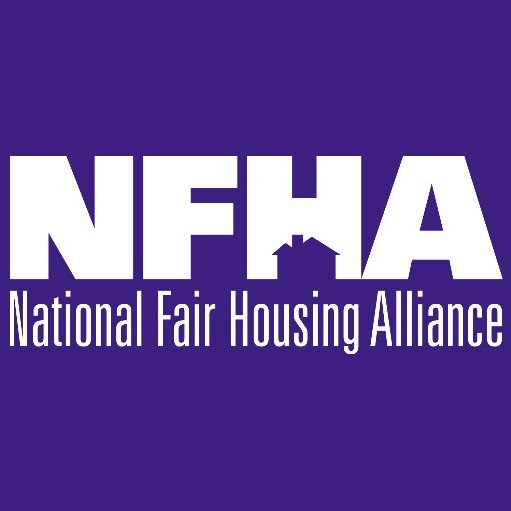NFHA and Other Civil Rights Leaders Fight Trump’s Attempt to Gut Core Civil Rights Protection

FOR IMMEDIATE RELEASE
August 16, 2019
Contact: Dale Van Ollefen ǀ (202) 823-3297 ǀ dvanollefen@kivvit.com
Jessica Aiwuyor ǀ jaiwuyor@nationalfairhousing.org
NFHA and Other Civil Rights Leaders Fight Trump’s Attempt to Gut Core Civil Rights Protection
Trump’s Department of Housing and Urban Development publishes proposed rule that would expose people of color, women, immigrants, families with children, people of faith, LGBTQ people, people with disabilities, and other communities to discrimination
WASHINGTON – The Trump administration made good on its threat to dismantle key longstanding civil rights protections today by advancing one of the most extreme attacks yet on a legal tool aimed at preventing housing discrimination.
The National Fair Housing Alliance (NFHA) condemned a proposed rule published by the Department of Housing and Urban Development (HUD) that would destroy a key civil rights tool under the Fair Housing Act called “disparate impact.” If the rule is finalized, it would be virtually impossible to challenge covert discriminatory practices by financial institutions, insurance companies, and housing providers, and open the floodgates for widespread discrimination against millions of people, particularly communities of color, women, immigrants, families with children, people of faith, LGBTQ people, and people with disabilities.
The Trump administration’s move has already drawn widespread opposition from a diverse array of civil rights, consumer protection, and community development groups. Now, NFHA and a coalition of advocates are launching a campaign to “Defend Civil Rights” aimed at mobilizing thousands of people across the country to oppose the proposed rule and sound the alarm on its widespread, harmful consequences.
“From day one, the Trump administration has been working to obliterate the rights and liberties of millions of people, and now they’ve launched one of the most aggressive attacks on civil rights protections. The National Fair Housing Alliance strongly condemns HUD’s proposed rule that would effectively gut the ‘disparate impact’ tool under the Fair Housing Act. This rule is a blatant attempt to destroy hard-won protections against housing discrimination in this country, and we will stop it,” said Lisa Rice, President and CEO of the National Fair Housing Alliance. Rice added, “The Fair Housing Act, including disparate impact, is a direct gift from Dr. Martin Luther King, Jr. to the people of this nation. He gave his life for this. It is a key part of his legacy and dream for a fair America. We will not see that dream deferred or denied.”
“That’s why the National Fair Housing Alliance and its network of partners are fighting back. We are launching the ‘Defend Civil Rights’ campaign to mobilize thousands of people across the country to oppose this attack and sound the alarm on its widespread consequences. This is yet another example of the Trump administration’s crusade to undo the progress made by the civil rights movement. We will use every tool we have to protect disparate impact and ensure the continuation of critical civil rights protections for all.”
HUD’s proposed rule adds new standards and makes drastic changes that institute dangerous exceptions to the disparate impact tool, which has been used for almost 50 years to combat discrimination. Key proposed changes include:
- Overwhelming obstacles to prove discrimination: Victims of discrimination will face a drastically higher burden to prove a disparate impact claim under the FHA, making it virtually impossible to succeed. Victims are asked to play a rigged game of whack-a-mole, trying to guess what justifications a defendant might invoke and preemptively debunk them.
- Profits above all else: Language in the proposed rule suggests that a practice or policy that is profitable could be immune from challenge for its discriminatory impact—with the burden on discrimination victims to show that a company can make at least as much money without discriminating.
- Discrimination by algorithm: The proposed rule would provide special defenses for business practices that rely on statistics or algorithms. Disparate impact is a critical tool to rein in discrimination in the use of algorithmic models—such as credit scoring, pricing, marketing, and automated underwriting systems. They can have starkly discriminatory effects but can operate as a hidden box, making those discriminatory effects difficult to attribute to any person’s intentional discrimination. HUD’s proposed rule could effectively immunize such covert discrimination by algorithm.
- No data, no records, no accountability: Businesses are disincentivized to collect important data that can reveal discrimination. This means that victims of discrimination will be unable to identify whether discrimination is happening and lack the ability to challenge it if they do detect discrimination.
The Fair Housing Act bars not only intentional discrimination, but also the use of policies that appear neutral on their face but have the effect of creating unnecessary “disparate impact” on underserved groups such as people of color, women, and people with disabilities. Disparate impact is a foundational fair housing principle and an essential part of the fabric of fair housing enforcement. The doctrine was established in the 1970s and has been supported by both Republicans and Democrats since then.
First employed by the Nixon administration, it requires housing providers, lenders, and others to make sure their policies apply fairly to all persons. Every appellate court to consider the question has found that the Fair Housing Act bars practices with unjustified disparate impact. In the landmark 2015 case Texas Department of Housing and Community Affairs v. Inclusive Communities Project, the Supreme Court agreed, finding that disparate impact is critical to the Fair Housing Act’s ability to accomplish its “continuing role in moving the Nation toward a more integrated society.” The Court acknowledged a 2013 HUD rule that recognized disparate impact claims and provided a framework for litigating them, never suggesting that anything in the 2013 rule was invalid. In fact, the Court’s decision references the 2013 rule.
HUD’s proposed changes to the 2013 rule would gut effective disparate impact enforcement. This is one of the most overt assaults so far in the Trump administration’s crusade to dismantle essential civil rights protections.
About the National Fair Housing Alliance (NFHA)
Founded in 1988, NFHA is a consortium of more than 200 private, non-profit fair housing organizations, state and local civil rights agencies and individuals from throughout the United States. Headquartered in Washington, D.C., NFHA provides comprehensive education, advocacy, community development and enforcement programs.
###
